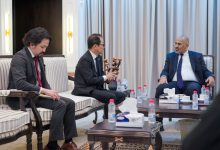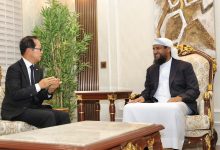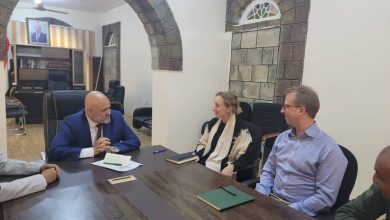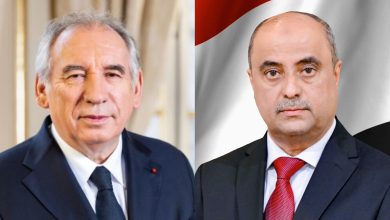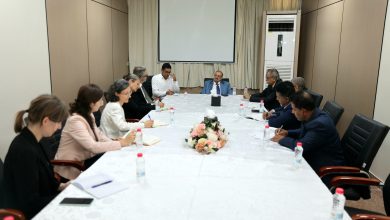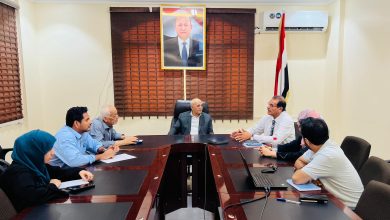Council member Tariq Saleh meets with Rima’s leaders, asserting Iran halted the Houthis in the Red Sea, unaware of Abdulmalik’s actions.
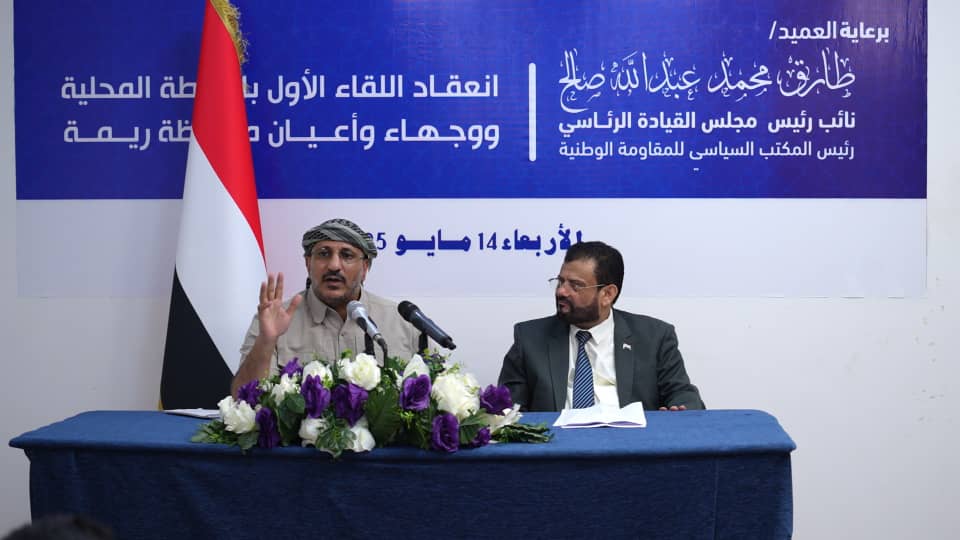
Meeting with Local Leaders in Al-Raima
On Wednesday, Tariq Saleh, a member of the Presidential Leadership Council, met with officials, tribal leaders, and dignitaries from Al-Raima Governorate in a significant gathering held in the city of Al-Mokha. The meeting included the governor of the province, Major General Ali Mohammed Al-Houri.
Acknowledging Al-Raima’s Resilience
Tariq Saleh opened the meeting by greeting the free people of Al-Raima across the nation. He praised their historical role in resisting the Houthi militia since the six wars, calling them a "support and reinforcement" for their national struggle. He emphasized that Al-Raima has always been at the forefront of opposing the Iranian agenda.
Historical Significance of Al-Raima
Saleh highlighted Al-Raima’s long-standing resistance against oppressive regimes throughout history. He recalled the province’s pivotal role in breaking the siege during the 1970s, led by Major General Yahya Musleh. He asserted that Al-Raima and its capital, Al-Jabin, will only bow to the Creator.
Participation in the National Struggle
Saleh affirmed that the people of Al-Raima actively participate in the national liberation struggle across all branches of the armed forces. He honored the sacrifices of local martyrs, including Colonel Abdulghani Al-Shibli, a national resistance hero who fell while fighting the Iranian threat at the gates of Al-Hudaydah.
The Threat of Iranian Influence
He pointed out that the Houthi militia has exploited the Yemeni people’s tolerance following the September 26 Revolution to re-establish itself under the guise of "guardianship." This Iranian-backed project faces significant resistance from Yemenis, who have made substantial sacrifices. Saleh stressed that the republican Yemen will not accept any form of guardianship, noting that the Houthis have destroyed the achievements of Yemenis built over sixty years.
Economic Exploitation by the Houthis
Saleh criticized the Houthis for focusing on taxation and creating investment companies while undermining commercial enterprises. He argued that the militia serves the interests of both Israel and Iran, rather than those of the Yemeni people.
Call for National Unity
Addressing the shifting international stance towards the Houthis following recent attacks in the Red Sea, Saleh urged Yemenis to unite in a national front to restore the state and its institutions. He warned that internal disputes would prolong the suffering of the people under Houthi terrorism. He reiterated the importance of self-reliance in preparing for the inevitable national liberation battle.
Insights on Houthi Leadership
Saleh revealed that Houthi leader Abdulmalik Al-Houthi was unaware of a prior Iranian-American agreement regarding the Red Sea. He received orders from Iran to halt attacks on ships and was compelled to comply. Saleh noted that Al-Houthi admitted in a private meeting that U.S. strikes targeting militia leaders and hideouts caused more damage than Israeli airstrikes, which primarily affected infrastructure serving Yemenis. He pointed out that the Houthis face escalating internal crises, alongside growing public rejection and isolation.
Fighting for Regional Freedom
Saleh emphasized that Yemenis are currently fighting the Iranian project on behalf of all free peoples in the Arab and Islamic nations. He warned that if this project is not eradicated in Yemen, it could spread to other Arab countries.
Commitment to Resistance
The Presidential Leadership Council member pledged to continue the fight along the western coast, raising arms against the Iranian project until the liberation of Sana’a, in collaboration with all free individuals.
Closing Remarks
In closing, Saleh commended the recovery of Lebanon and Syria, congratulating the Syrian people on the lifting of sanctions. He appreciated the efforts of Saudi Arabia, under the leadership of Crown Prince Mohammed bin Salman, in achieving this breakthrough for the Syrian people.
To follow the news in Arabic
